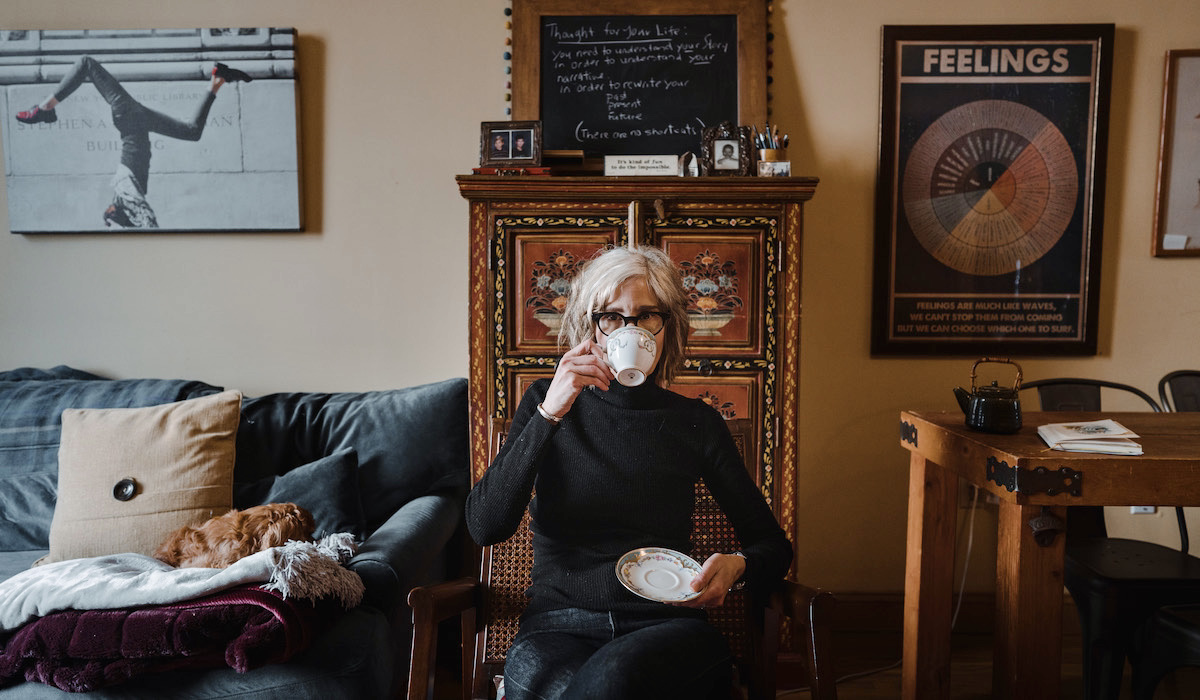Dropping Your Need to be ‘Liked ‘

Photo credit: Dylan Leslie
When did the need to be liked become an epidemic? Ancestrally, humans need to be accepted to optimize our survival rate. Being accepted today, however, has taken on a new need. It has less significance on our ability to survive and more to do with a belief that the opinions of others can determine our emotional well-being and reinforce deep feelings of inadequacies. We need to collectively work to let this go.
Many years ago when I was twenty-four, I was out with a friend. In a brief moment, I wondered if I actually liked her—as a friend or as a person. I found this thought curious and dug a little deeper. Were we friends? Acquaintances? What were we? During my next therapy session, I posed the question: “Do we have to like our friends?” My therapist smiled and emphatically said, “not at all.”
As the thought mushroomed into insights in every area of my life I began to frame what held importance to me in each of my relationships, and it gave me insight into the concept of being “liked.” To a degree, we all need to be accepted. We all need to connect, survive, and thrive. We know that a healthy and supportive social circle offers us a way to thrive. But to solely rely on social validation, and to always need to be liked, can prevent us from being our authentic selves.
First and foremost, we need to like ourselves. But liking oneself is becoming increasingly challenging with social media dictating our self-worth. Subliminally, it reinforces that we are not good enough. It feeds the inner critic in our minds. Today, being liked and having millions of followers gives some the title of “Influencer.” But it also reinforces the concept that one never has enough—enough money, enough followers, enough likes. As the competition grows, our self-believed inadequacies are amplified.
So why do we care? And what happens if someone doesn’t like us? We can check in with ourselves and remind ourselves that other people’s opinions of us or liking us has no bearing on who we are as a human being or our value or lack of it. Do followers and likes equal success? Does this make us feel important? Safe? And if so for how long?
In my work as an intuitive life coach, I work to help my clients step back from the need to be externally liked. Each and every one of us deserves to feel centered in ourselves. We deserve to feel worthy and seen and not at the whim of others’ “swipes” or “likes.” When you release yourself from this you find true freedom. You get to be yourself. You live in a state of autonomy and awareness. You are more aligned with being of service without hidden agendas.
To free ourselves from the need to be “liked” is an act of self-love—and leads us to true peace. Here are some ways to free yourself:
- Take some time to think about what being “liked” means for you. Write it out. Journal about it. Then draw a line from what it means to be accepted vs. needing to be liked.
- Resist ostracism, online shaming, or any kind of ridicule. Rather, focus on forgiving and allowing yourself and others to be human. We all make mistakes, say and do things worthy of retraction. Voices need to be heard, even the ones we do not like or may not agree with. If we are afraid to speak up and out, we may miss those voices that carry the most healing and love.
- Consider your place in social media. Do you care about a large following or do you care about offering content as a way to express who you are, your business values or just a way of connecting with friends and family? Give this deep thought.
- Find or recognize your support circle who will mirror back to you your behavior and choices. They will accept you for having the courage to be who you are and respect your need for authenticity over being liked. It is much more attractive to be accepted for who you are than to be liked. Being liked can be transitory.
- Get comfortable with saying “no” and not having to explain why.
These exercises can help us check in with ourselves. By doing this, we remind ourselves that other people’s opinions of us have no bearing on who we are as human beings.
The remedy will always be self: Self-care. Self-reflection. Selfless service. I am talking about the self-care that goes deep into our heart and expands our souls. When we love ourselves, only then can we truly be of service to others and the world at large. With self-love, we feel safe in an uncertain world because we intrinsically know that we are connected to something larger than ourselves and we are intimately intertwined with each other—others who don’t even know us to like us or not. And isn’t that beautiful?
As the philosopher, Howard Thurman put it so succinctly, “Follow the grain in your own wood.” Like yourself. Get to know who you are and make yourself the number one relationship in your life. You are that important and when you discover how extraordinary your life is, your appreciation for yourself will not rely on validation elsewhere.
This original essay was featured in the March 10, 2021 Midweek edition of The Sunday Paper. The Sunday Paper publishes News and Views that Rise Above the Noise and Inspires Hearts and Minds. To get The Sunday Paper delivered to your inbox each Sunday morning for free, click here to subscribe.
